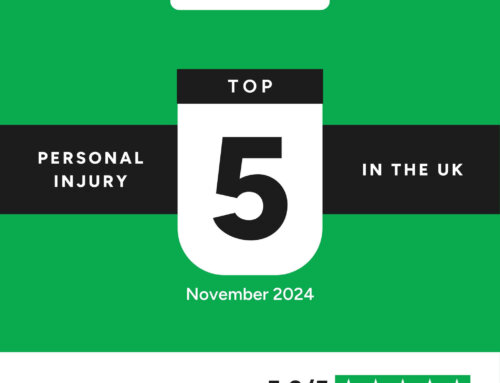Securing compensation for personal injury caused by someone else’s fault is not easy without a lawyer.
However, many people wonder if they can make a successful claim on their own. They know that if they win, they must pay legal costs from their compensation, assuming they have entered into a No Win No Fee agreement. Therefore, the idea of receiving 100% of the compensation is very attractive.
If you are wondering whether you can make a personal injury claim without the help of a personal injury solicitor, we’ve outlined the claims process and some of the issues you’ll encounter below.
However, it is vital to be aware that if you issue court proceedings against someone (or a company) and lose, you might have to pay the other side’s legal fees, even if you don’t have a lawyer.
Can I represent myself in a personal injury claim?
Everyone has a right to access to justice. So, if you cannot find suitable legal representation or don’t want to use a lawyer for your injury claim, you could pursue the matter yourself.
There’s more to a personal injury claim than simply turning up at court to argue your case before a judge. Many Pre Action Protocols must be followed before the case reaches a courtroom. These protocols are in place to structure the process and allow both sides to reach an agreement before undertaking legal proceedings, i.e. formally submitting your claim to the court.
Below is a brief overview of some of the steps that may need to be undertaken as part of an injury claim:
Letter Before Claim or Claim Notification Form
- Sending detailed information to the party you believe is at fault. Outlining the accident circumstances, your injuries, your losses and why you think the other party is at fault.
Submit Evidence
- The other side or their representative (insurance company, solicitor, etc.) may then reply accepting or denying fault (liability) and ask you to provide further evidence of your losses and injury. This may include vehicle repair invoices, proof of time off work, treatment costs, witness accounts, etc.
Experts
- Evidence from an independent expert will then be required to prove and quantify your claim. This expert evidence can be in the form of specialist medical evidence in the form of a report, a report from a motor vehicle engineer to assess how each vehicle was damaged, or a machinery expert’s report to confirm that the work equipment in question was faulty ( in the case of an accident at work claim). You will probably have to pay upfront for each of these reports to progress your claim.
Valuing a Claim
- You will have to attach a monetary value to your whole claim.
- You will have to work out all your past and future losses from the accident and send documentary evidence to the other side to back up your past and future losses. This usually involves working through the evidence of losses already incurred and calculating the cost of your future needs.
- You will need to put a value on the compensation you seek to recover due to the pain, suffering and loss of amenity you’ve suffered due to your injuries. Doing this involves analysing previous case law and the Judicial College Guidelines to estimate an appropriate compensation figure.
Court Proceedings
- If an admission of liability or negotiated settlement agreement can’t be reached, you may have to issue your case at an appropriate court. This process is governed by the Civil Procedure Rules, which outline the various steps, court forms, strict deadlines and orders that must be complied with. This also involves various court fees that you must pay upon submission.
Trial
- Before your trial date, you must prepare all your evidence, organise any witnesses/experts who need to attend and then decide whether to pay for a Barrister to argue your case or do this yourself as a litigant in person.
Settlement
- If settlement is achieved before or after a trial, then the other side will pay you the agreed personal injury compensation amount along with reimbursement of any legitimate expenses (expert reports etc.) incurred during the course of making your claim.
However, further complications may arise if the other side disputes the necessity of your expenses or the court awards you a compensation amount equal to or less than an offer the other side made before the trial.
Losing a case
- If you lose your case at the trial, you may be liable to pay all the other side’s legal costs and expenses.
What is a litigant in person?
‘Litigant in Person’ refers to someone who goes to court to represent themselves without a lawyer or legal counsel (such as a barrister) to argue their case.
The Bar Council, which represents Barristers in England and Wales, has created a comprehensive guide to representing yourself in court covering various civil legal matters.
What are the benefits of representing myself?
Nobody will be better at explaining your injuries and their effect on your life than you; however, this opportunity to tell the court about the extent of your injuries can also be expressed in conjunction with professional legal representation.
You may also save some legal fees by not instructing a solicitor for your personal injury claim. However, any saving on legal fees (capped at 25% of your compensation) must be carefully weighed against the risk of under-settling your claim or paying the other side’s legal costs if you lose.
What are the disadvantages?
There are many disadvantages to dealing with a personal injury claim yourself. It can be a complicated, time consuming and stressful process with many pitfalls, associated costs and risks. But the main deciding factors you must consider are:
Making a Risk-Free Claim
- When you instruct a personal injury solicitor, they owe you a duty to always act in your best interests. Therefore, by using a No Win No Fee agreement to fund your claim, your specialist solicitor will never put you in a position where you are worse off by making a claim.
On the other hand, if you handle your own claim and lose, you will not be compensated for your injury, and you’ll also be in a much worse financial position since you will have paid out for experts, court fees and the other side’s legal costs, which you won’t get back from the other party’s insurers.
The Value of Your Claim
- Placing a value on your claim will be one of the most challenging aspects of handling your own personal injury case. Have you correctly calculated your past and future loss of earnings, ongoing treatment costs, lost gym membership, and the cost of your family helping you around the house?
- Putting an accurate value on your injury claim for pain, suffering and loss of amenity is far from straightforward. Even experienced personal injury solicitors find this challenging in all but the most straightforward cases.
- Have you included every type of loss (head of damage) to which you are entitled? Would you know if you haven’t?
While dealing with your injury claim may save you a few hundred pounds in legal fees, what if you grossly under-settle your claim by thousands?
Specialists in the field of Personal Injury Law
- If you attempt to handle an injury claim yourself, you will be up against insurance companies and defendant solicitors whose purpose is to prove their client isn’t liable for your injury and/or to settle the claim for the lowest possible amount.
- Instructing a specialist personal injury lawyer will give your claim the best chance of succeeding. Your solicitor will have the experience and skills to counter the defendant’s legal arguments and low injury valuations.
The best way to deal with a personal injury claim
While handling a compensation claim yourself is possible, if you seek legal advice and instruct a personal injury lawyer to act on your behalf, you give your claim the best possible chance of success.
At Mooneerams, we offer an initial free consultation by phone with no obligation to take it any further with us. If we think your claim has reasonable prospects and you decide you’d like us to act on your behalf, you can pursue it risk-free under a No Win No Fee arrangement. Please feel free to call us on 029 2048 3615.









